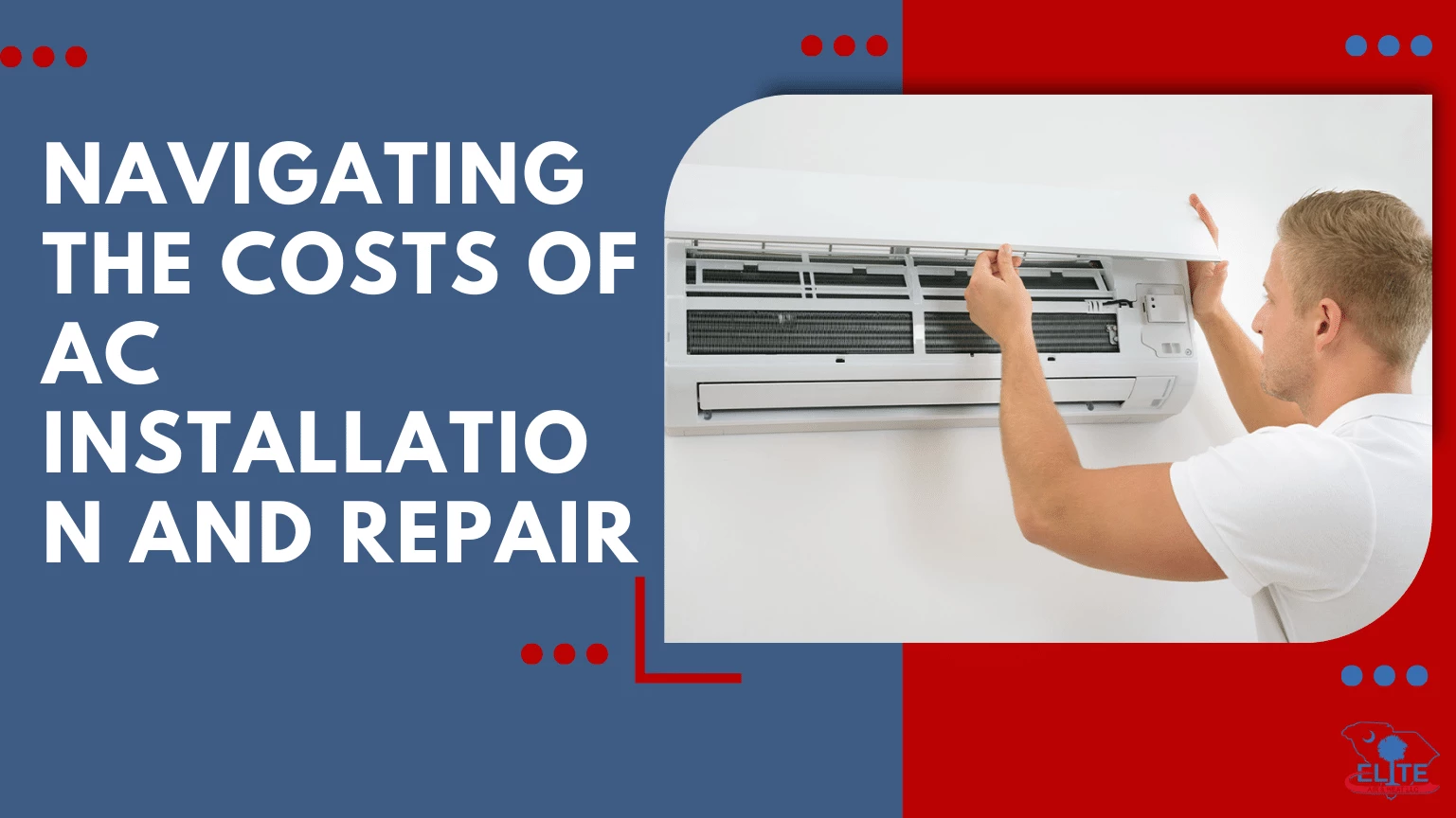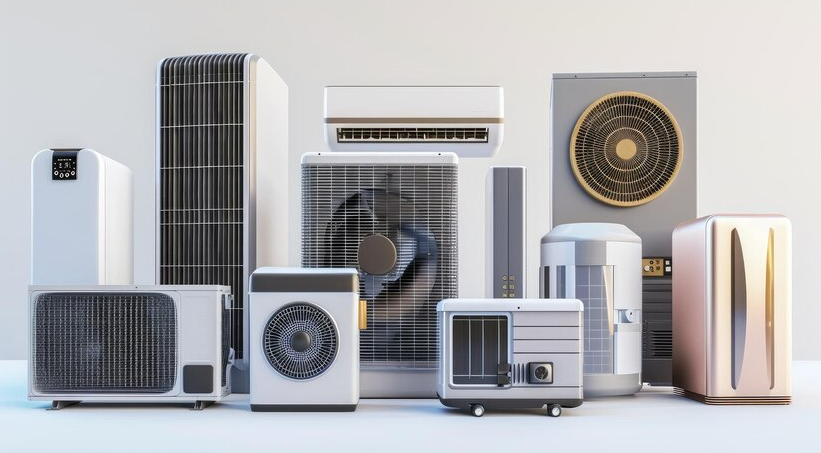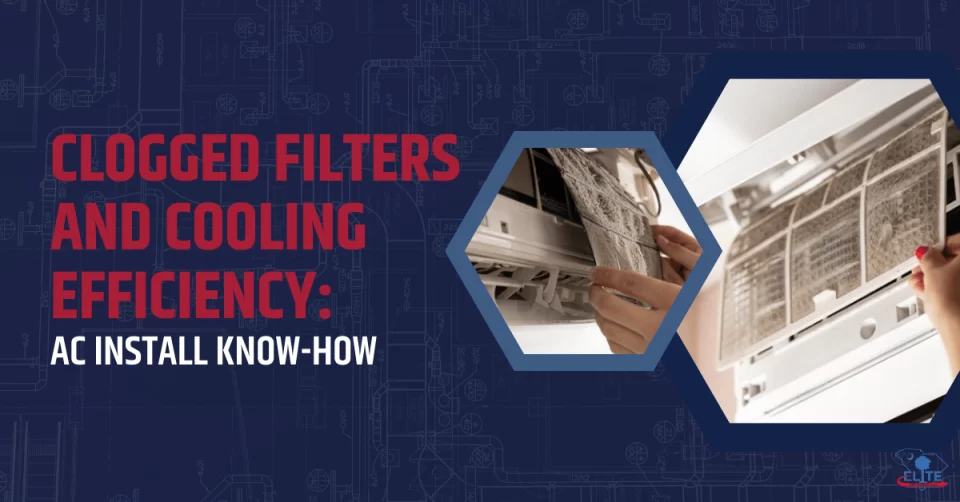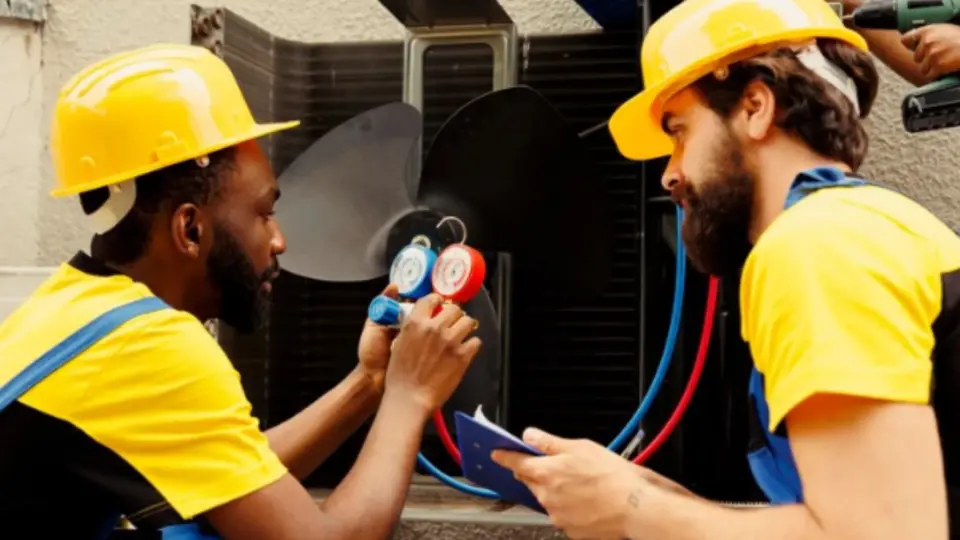As the summer heat waves roll in bearing swelteringly humid temperatures, staying cool indoors suddenly becomes a top priority. However, many homeowners are unfamiliar with the costs and complexities associated with air conditioner installation, repair, and maintenance.
With so many options and variables to consider, determining the best course of action for your home’s AC needs can feel downright overwhelming. From choosing between ducted central systems or ductless mini-splits to deciding whether a repair or replacement is warranted, navigating the options requires careful planning and research.
Why is aircon installation expensive?
Air conditioning installation is expensive due to several factors. Firstly, the complexity of HVAC systems requires specialized knowledge and skills. HVAC technicians undergo training and certification, adding to labor costs.
Additionally, installing air conditioning involves intricate ductwork, electrical wiring, and sometimes even structural modifications, increasing material expenses. The cost of the unit itself can be significant, especially for high-efficiency models or those with advanced features.
Moreover, compliance with building codes and regulations necessitates meticulous installation procedures, further driving up costs. Insurance, warranties, and overhead expenses for business running also contribute to the overall price. Professional installation ensures the system’s safety, efficiency, and longevity, making it a worthwhile investment despite the initial expense.
How much does aircon installation cost?
The cost of air conditioning installation can vary widely depending on several factors, including the unit’s type and size, the installation’s complexity, the region or location where you live, and any additional features or requirements. Here are some general estimates:
- Window Unit: These are typically the least expensive option and can range from $200 to $1,000 for the unit itself, with installation costs ranging from $150 to $300.
- Ductless Mini-Split System: These systems are more expensive than window units but offer more flexibility and efficiency. The cost of a ductless mini-split system can range from $1,500 to $4,000 per unit, with installation costs typically ranging from $1,000 to $3,000 per indoor unit.
- Central Air Conditioning: Installing a central air conditioning system is the most expensive option but provides whole-home cooling. Costs can vary significantly depending on your home’s size, the system’s efficiency, and any additional features. You can expect to pay between $3,000 and $7,000 for the unit alone, with installation costs ranging from $3,000 to $5,000 or more.
Getting quotes from multiple HVAC contractors is essential to get an accurate estimate for your specific needs. Energy efficiency, warranty coverage, and ongoing maintenance costs should be considered when selecting a system.
Is it better to repair or replace a AC?
Whether it’s better to repair or replace an air conditioning system, age, damage severity, and or malfunction, the cost of repairs, energy efficiency, and long-term savings. Here are some considerations to help you decide:
- Age of the System: If your air conditioning system is older and approaching the end of its expected lifespan (typically around 10-15 years for most systems), it may be more cost-effective to replace it rather than continue to repair it.
- Extent of Damage: If the repair is minor and relatively inexpensive, repair the system, especially if it’s relatively new or will significantly extend its lifespan.
- Cost of Repairs: Compare the cost of repairs to the cost of replacement. Suppose the cost of repairs is approaching or exceeds 50% of the price of a new system; replacing the unit is often more economical, especially if the system is older.
- Energy Efficiency: Newer air conditioning systems are typically more energy-efficient than older ones. If your system is outdated and inefficient, you could save money on your energy bills by replacing it with a newer, more efficient model.
- Frequency of Repairs: If your air conditioning system requires frequent repairs or is experiencing multiple issues, it may be a sign that it’s reaching the end of its lifespan and is prone to more problems in the future. Replacing the system could save you money in the long run by avoiding future repair costs.
- Environmental Considerations: Newer air conditioning systems often use eco-friendly refrigerants and are designed more eco-friendly than older models. If carbon footprint reduction is crucial, replacing your old system with a newer, more efficient one may be the better choice.
Ultimately, deciding to repair or replace your air conditioning system depends on your specific circumstances and priorities. It’s often helpful to consult with a qualified HVAC professional who can assess personalized advice based on system condition and your needs.
How do I know if my AC needs repair?
Several signs indicate that your air conditioning system may need repair. Here are some common indicators to watch out for:
- Decreased Cooling Performance: If your air conditioner struggles to maintain a comfortable temperature in your home or if you notice uneven cooling between rooms, it could be a sign of a problem. Reduced cooling performance may indicate issues with airflow, refrigerant levels, or other components.
- Strange Noises: Unusual sounds from your air conditioner, such as grinding, squealing, rattling, or banging noises, could indicate various mechanical issues, such as worn parts, loose parts, or system debris.
- Foul Odors: Foul or musty odors emanating from your air conditioner when running may indicate mold, mildew, or bacterial growth inside the unit or ductwork. This could be a sign of poor maintenance, dirty filters, or moisture issues.
- Leaks or Moisture: Moisture or water accumulating near your air conditioner or leaks inside your home, it could indicate a clogged condensate drain, refrigerant leak, or other issues that require attention.
- Frequent Cycling On and Off: If your AC keeps turning on and off, (short-Cycling), it could indicate various problems, including issues with the thermostat, compressor, or refrigerant levels.
- Increased Energy Bills: Your energy expenses suddenly rise without any increase in usage could indicate that your air conditioner is working inefficiently due to underlying issues such as dirty coils, refrigerant leaks, or aging components.
- Visible Damage or Wear: Inspect your air conditioning unit for visual damage, such as worn-out or damaged components, bent fins, or excessive dirt or debris buildup.
If you notice any of these signs, it’s essential to address them promptly to maintain air conditioning performance and efficiency by preventing further damage. Avoid safety dangers and costly repairs by calling a trained HVAC expert to diagnose and fix the issue. Regular inspections and maintenance can prevent issues before they escalate.





